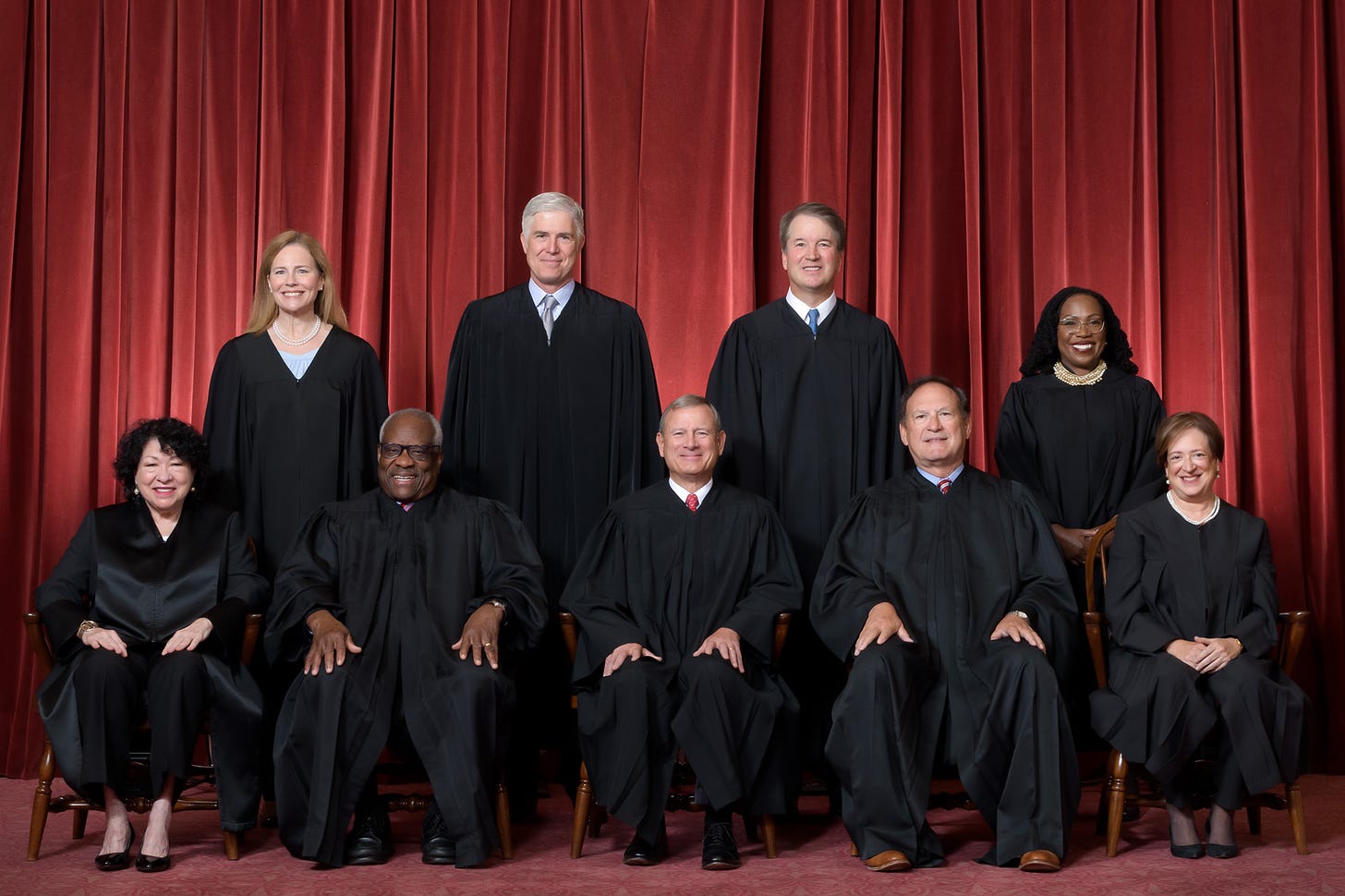Image: Collection of the Supreme Court of the United States
There are a lot of ongoing debates about rent control. Does it have a positive or negative effect on housing supply? Does it benefit the well-off as much as the poor? Will rent-controlled landlords still perform regular upkeep on their properties? I am among many who have waded into these debates, both in this newsletter and in a Jacobin article.
(Spoiler alert: rent control does not have a negative effect on housing supply or upkeep, it disproportionately benefits the poor, and is a proven remedy for rent spikes. That is why 32 economists recently sent a letter to President Biden advocating for national-level rent control.)
But one issue seemed conclusively decided: rent control is fully legal.
Generations of landlords and their lobbyists have challenged rent control laws in the courts, and they have always lost. In 1988, then-Chief Justice William Rehnquist, hardly a flaming liberal, wrote the Supreme Court’s decision ruling that rent control laws are fully constitutional. When New York landlords recently filed their latest lawsuit challenging the New York Rent Stabilization Law, the clear precedent from 1988’s Pennell vs. City of San Jose compelled a New York district court to dismiss the landlord’s case. The Second Circuit Court of Appeals unanimously affirmed that dismissal.
“The case law is exceptionally clear that legislatures enjoy broad authority to regulate land use without running afoul of the Fifth Amendment’s bar on physical takings,” the Second Circuit wrote.
But the landlords were neither surprised nor deterred. They made it clear they were merely jumping through the required lower-court hoops on their way to the Supreme Court. Sure enough, the landlords requested that the Supreme Court grant certiorari and reverse the Second Circuit decision in Community Housing Improvement Program vs. City of New York. Over a dozen combinations of housing industry and affiliated groups have filed amici curiae (friend of the court) briefs to echo the call to strike down rent control.
Why so much effort to overturn a clear, solid precedent? After all, we teach every first-year law student about the needle-in-haystack chance for success for a petition for writ of certiorari, with the Supreme Court accepting barely 1% of the 8,000-plus cert petitions filed each year. It’s almost as if the landlords think they have some kind of secret channel of influence with the justices.
Which, sadly, they do.
Terrific reporting by Pro Publica revealed that Supreme Court justices Samuel Alito and Clarence Thomas accepted and then tried to hide lavish gifts and benefits from billionaires who desperately want rent control to die. Alito accepted a six-figure private flight to a luxury fishing trip from hedge fund billionaire Paul Singer, whose Elliott Corporation is a big real estate investor. Real estate tycoon Harlan Crow has paid for vacations, purchased Thomas’s mother’s home, and paid for Thomas’s nephew’s tuition and Thomas’s wife’s political projects.
Alito and Thomas claim that they considered those gifts as being too insignificant to disclose. But their benefactors seem to think their investments in their cozy Supreme Court relationships matter. Why wouldn’t they? Alito and Thomas have both voted in favor of their donors several times, including siding with corporate landlords and real estate investors to strike down the Covid eviction moratorium.
The justices’ vacation buddies are not bothering to hide their deep interest in the rent control case. The corporate landlord lobbying association, the National Multifamily Housing Council, is virulently opposed to rent control and submitted a brief in support of the legal challenge at the Second Circuit. As reported by the Revolving Door Project, the NMHC’s ties to Justice Thomas’s patron Harlan Crow are tight, with Crow Holdings executive Ken Valach chairing the NMHC and big donations flowing from Crow to the organization.
The Lever’s Julia Rock has laid out how the Manhattan Institute, which Alito benefactor Paul Singer chairs, has formally argued to the Supreme Court that it should seize the opportunity to destroy rent control.
On paper, the landlord’s argument that rent control should be ruled unconstitutional relies on this ultra-conservative court’s 2021 decision in Cedar Point Nursery vs. Hassid, which ruled that a state law requiring farm owners to allow union workers on to the grounds to be an unlawful “taking” of private property. The relationship between that case and rent control is a stretch, and the Second Circuit judges dismissed that analogy out of hand. But, then again, none of those judges had enjoyed the hospitality of a private jet and vacation bankrolled by landlords and their investors.
In a video of Justice Alito’s billionaire-gifted fishing trip, a worker at the lodge identified “Sam” Alito on screen “We take good care of him because he makes all the rules.” They indeed took care of Sam, as Harlan Crow has taken care of Justice Thomas. On September 26th, when the Supreme Court announces its decision whether to accept the rent control challenge, we will learn whether the judges will be returning the favor.






Thank you, Fran. All your subjects are important but, having been involved in rent strikes many years ago in St. Louis, I especially appreciate this one.